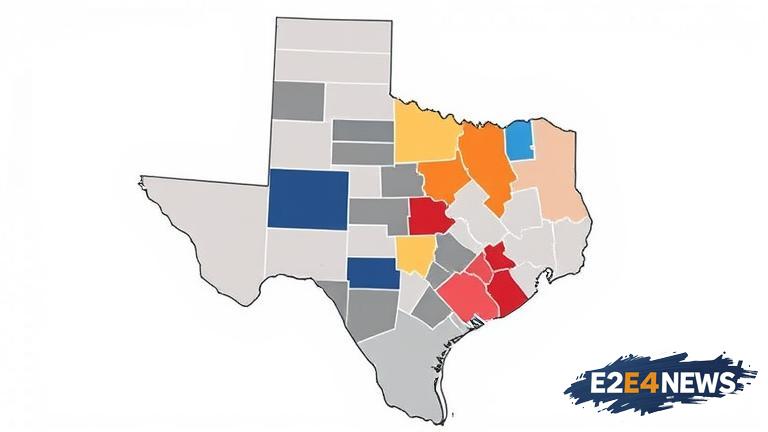The Texas redistricting battle has been a longstanding and contentious issue, with the state’s electoral maps being challenged in court for years. Recently, the Trump administration has become involved in the case, using it as a testing ground for their latest legal strategy. This strategy involves arguing that the Voting Rights Act does not apply to electoral maps, and that states have the sole authority to draw their own district lines. The administration’s lawyers have been using this argument in court, claiming that the federal government does not have the power to intervene in state-level redistricting decisions. The case has significant implications for voting rights and electoral maps across the US, as it could potentially allow states to gerrymander their districts without federal oversight. The Texas redistricting fight began several years ago, when a group of plaintiffs challenged the state’s electoral maps in court. The plaintiffs argued that the maps were gerrymandered to favor Republican candidates, and that they diluted the voting power of minority communities. The case made its way to the Supreme Court, which ultimately ruled that the maps were unconstitutional. However, the court’s decision was narrow, and it did not provide clear guidance on how to redraw the maps. The Trump administration has now become involved in the case, arguing that the Voting Rights Act does not apply to electoral maps. The administration’s lawyers claim that the act only applies to voting laws, such as voter ID requirements and early voting rules. They argue that electoral maps are a separate issue, and that states have the sole authority to draw their own district lines. The plaintiffs in the case disagree, arguing that the Voting Rights Act clearly applies to electoral maps. They point to language in the act that prohibits states from drawing district lines that would dilute the voting power of minority communities. The case has significant implications for voting rights and electoral maps across the US. If the Trump administration’s argument is successful, it could allow states to gerrymander their districts without federal oversight. This could lead to a situation in which minority communities are unable to elect representatives of their choice, and in which electoral maps are drawn to favor one party over another. The case is also being closely watched by civil rights groups, who are concerned about the potential impact on voting rights. The NAACP and other organizations have filed briefs in the case, arguing that the Voting Rights Act clearly applies to electoral maps. The case is likely to have significant implications for the 2024 election, as electoral maps are being redrawn across the US. The Trump administration’s argument could potentially allow states to gerrymander their districts, which could impact the outcome of the election. The case is also being seen as a test of the Trump administration’s commitment to voting rights. The administration has been criticized for its handling of voting rights issues, and this case is being closely watched by civil rights groups. The Texas redistricting battle is a complex and contentious issue, with significant implications for voting rights and electoral maps across the US. The case is likely to continue to be closely watched in the coming months, as the Trump administration’s argument is considered by the courts. The outcome of the case could have significant implications for the future of voting rights in the US, and could potentially impact the outcome of the 2024 election. The Trump administration’s latest legal strategy is being seen as a significant development in the case, and could potentially allow states to gerrymander their districts without federal oversight. The case is a reminder of the ongoing struggle for voting rights in the US, and the need for continued vigilance and advocacy to protect these rights. The Texas redistricting battle is a critical issue, and one that will continue to be closely watched in the coming months. The case has the potential to impact the outcome of the 2024 election, and could have significant implications for voting rights and electoral maps across the US. The Trump administration’s argument is being seen as a significant threat to voting rights, and could potentially allow states to gerrymander their districts without federal oversight. The case is a reminder of the importance of protecting voting rights, and the need for continued advocacy and vigilance to ensure that these rights are protected. The Texas redistricting battle is a complex and contentious issue, and one that will continue to be closely watched in the coming months. The case has significant implications for voting rights and electoral maps across the US, and could potentially impact the outcome of the 2024 election. The Trump administration’s latest legal strategy is being seen as a significant development in the case, and could potentially allow states to gerrymander their districts without federal oversight. The case is a reminder of the ongoing struggle for voting rights in the US, and the need for continued vigilance and advocacy to protect these rights.
